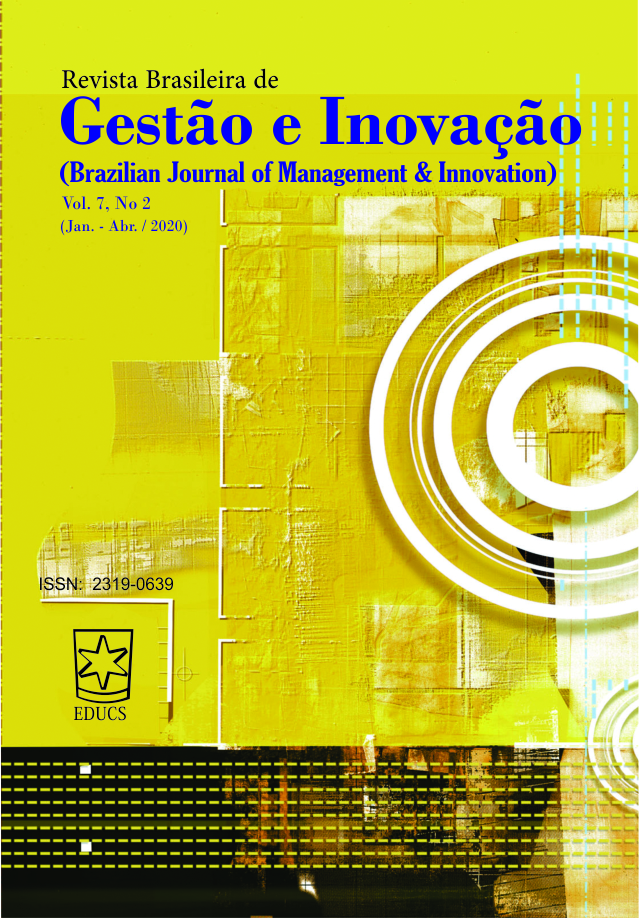THE INDIRECT INFLUENCE OF MOUTH-TO-MOUTH MARKETING ON THE CHOICE CRITERION OF PUBLIC EDUCATION INSTITUTIONS | A INFLUÊNCIA INDIRETA DO MARKETING BOCA A BOCA NO CRITÉRIO DE ESCOLHA DE UMA INSTITUIÇÃO DE ENSINO PÚBLICA
Keywords:
Word of Mouth Marketing, Choice Criterion, Educational Institution, Teaching Modality, Indirect Effect.Abstract
Several studies show a positive influence from word of mouth (WOM) marketing on the choice criterion of an Education Institution (EI). However, these researches did not investigate the indirect effect from WOM marketing on such choices and are also influenced by self-selection problems, which could result in biased estimators for the effect of WOM marketing on choice criterion for an EI. This study aims to verify if the suggestion by students’ Education Institution through WOM marketing influences indirectly their choice criterion. A theoretical model was to mitigate endogenous features related to these criteria and also minimize auto selection problems. The research – with 1220 answers - was applied in a public IE that promotes many education modalities. The results show there is no evidence that WOM marketing systematically has straight effect on students’ choice criterion by an IE. However, it is concerned that WOM marketing can enhance influence on some variables that interfere on students’ choice criterion by an IE.
DOI: 10.18226/23190639.v7n2.04
Hildo Anselmo Galter Dalmonech, Fundação Instituto Capixaba de Pesquisas em Contabilidade, Economia e Finanças (FUCAPE). Brasil.
E-mail: hildo.anselmo@ifes.edu.br
Danilo Soares Monte-mor*, Fundação Instituto Capixaba de Pesquisas em Contabilidade, Economia e Finanças (FUCAPE). Brasil.
E-mail: danilo@fucape.br
Submetido: Junho 2018
Aceito: Abril 2019
*Contato para Correspondência
Downloads
Published
How to Cite
Issue
Section
License
The author must guarantee that:
- there is full consensus among all the coauthors in approving the final version of the document and its submission for publication.
- the work is original, and when the work and/or words from other people were used, they were properly acknowledged.
Plagiarism in all of its forms constitutes an unethical publication behavior and is unacceptable. Revista Brasileira de Gestão e Inovação has the right to use software or any other method of plagiarism detection.
All manuscripts submitted to RBGI - Revista Brasileira de Gestão e Inovação go through plagiarism and self-plagiarism identification. Plagiarism identified during the evaluation process will result in the filing of the submission. In case plagiarism is identified in a manuscript published in the journal, the Editor-in-Chief will conduct a preliminary investigation and, if necessary, will make a retraction.
This journal, following the recommendations of the Open Source movement, provides full open access to its content. By doing this, the authors keep all of their rights allowing Revista Brasileira de Gestão e Inovação to publish and make its articles available to the whole community.
RBGI - Revista Brasileira de Gestão e Inovação content is licensed under a Creative Commons Attribution 4.0 International License.
Any user has the right to:
- Share - copy, download, print or redistribute the material in any medium or format, linking to RBGI site.
- Adapt - remix, transform and build upon the material for any purpose, even commercially.
According to the following terms:
- Attribution - You must give appropriate credit, provide a link to the license, and indicate if changes were made. You may do so in any reasonable manner, but not in any way that suggests the licensor endorses you or your use.
- No additional restrictions - You may not apply legal terms or technological measures that legally restrict others from doing anything that the license permits.
#RBGI







